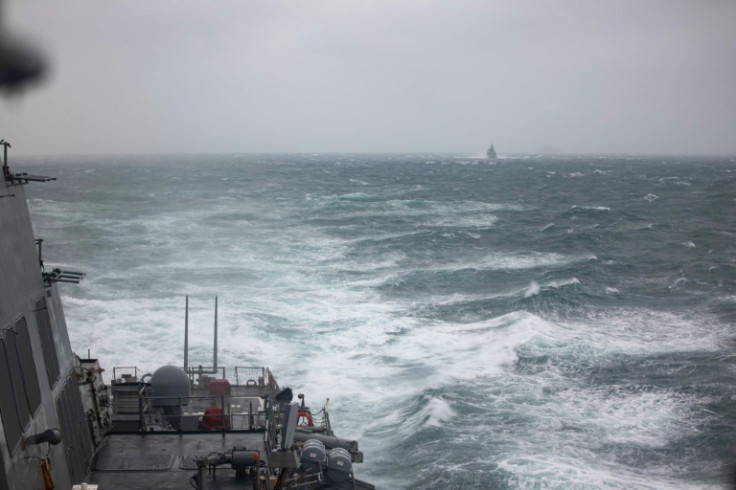
Taiwan said its military was on high alert as Chinese warships sailed near the island on Monday, preparing for a strong response from China to President Lai Ching-te's stopovers in the United States.
Taiwan said it had also detected Chinese coast guard vessels and that Beijing's People's Liberation Army (PLA) had restricted the airspace off the Chinese coast.
"In response to these actions by the PLA, the MND has initiated combat readiness drills, factoring in enemy threats, weather conditions, and tactical positioning," the Ministry of National Defense in Taipei said in a statement.
It added that military units were on "high" alert.
The ministry said its forces had "identified PLA Eastern, Northern, and Southern Theater Command naval formations, along with Coast Guard vessels, entering areas around the Taiwan Strait and the Western Pacific".
There has been intense speculation about the possibility of China launching military drills in response to Lai's trip to the Pacific that included stopovers in Hawaii and Guam.
There was no immediate public announcement by the PLA or Chinese state media about increased military activity around Taiwan.
However a foreign ministry spokeswoman in Beijing said China would "firmly defend" its sovereignty in response to the Taiwanese drills.
Taiwan regards itself as a sovereign nation with its own government, military, and currency.
But Beijing insists the island is part of its territory and has not ruled out using force to bring it under its control.
Lai spoke with Republican US House Speaker Mike Johnson in Guam on Thursday -- the highest-level US contact the Taiwanese leader had during a week-long trip -- which drew a barrage of criticism from Beijing.
China's foreign ministry warned Taiwan on Friday that "seeking independence with the help of the United States will inevitably hit a wall", and called on Washington to "cease meddling in Taiwan-related affairs".
In response to a question about possible Chinese military drills around Taiwan following his trip, Lai told reporters on Friday that "raising your fists is not as good as opening your hands".
"No matter how many military exercises, warships and aircraft China sends to coerce neighbouring countries, it cannot win the respect of any country," Lai said.
Taiwan's coast guard said on Monday it had detected "unusual movements" of seven Chinese coast guard ships since early Friday -- the day Lai returned to Taipei.
The Beijing army's airspace restrictions east of Zhejiang and Fujian provinces were expected to be in place until Wednesday, the defence ministry said.
"From the limited information available, the seven restricted airspaces are likely being used for two main purposes: missile testing and simulating no-fly zones, which represent a blocked airspace state," Su Tzu-yun, a military expert at the Institute for National Defense and Security Research in Taipei, told AFP.
Taiwan faces the constant threat of a military attack by China and relies heavily on US arms sales to boost its defences.
On the eve of Lai's Pacific tour, the United States approved a proposed sale to Taiwan of spare parts for F-16s and radar systems, as well as communications equipment, in deals valued at $385 million in total.
Lai said in the US state of Hawaii during his trip there was a need to "fight together to prevent war", warning there were "no winners" from conflict.
China has launched two large-scale military drills around Taiwan since Lai took office and regularly deploys fighter jets and navy ships to press its claims over the island.
Lai has been more outspoken than his predecessor Tsai Ing-wen in defending Taiwan's sovereignty, angering Beijing which calls him a "separatist".




